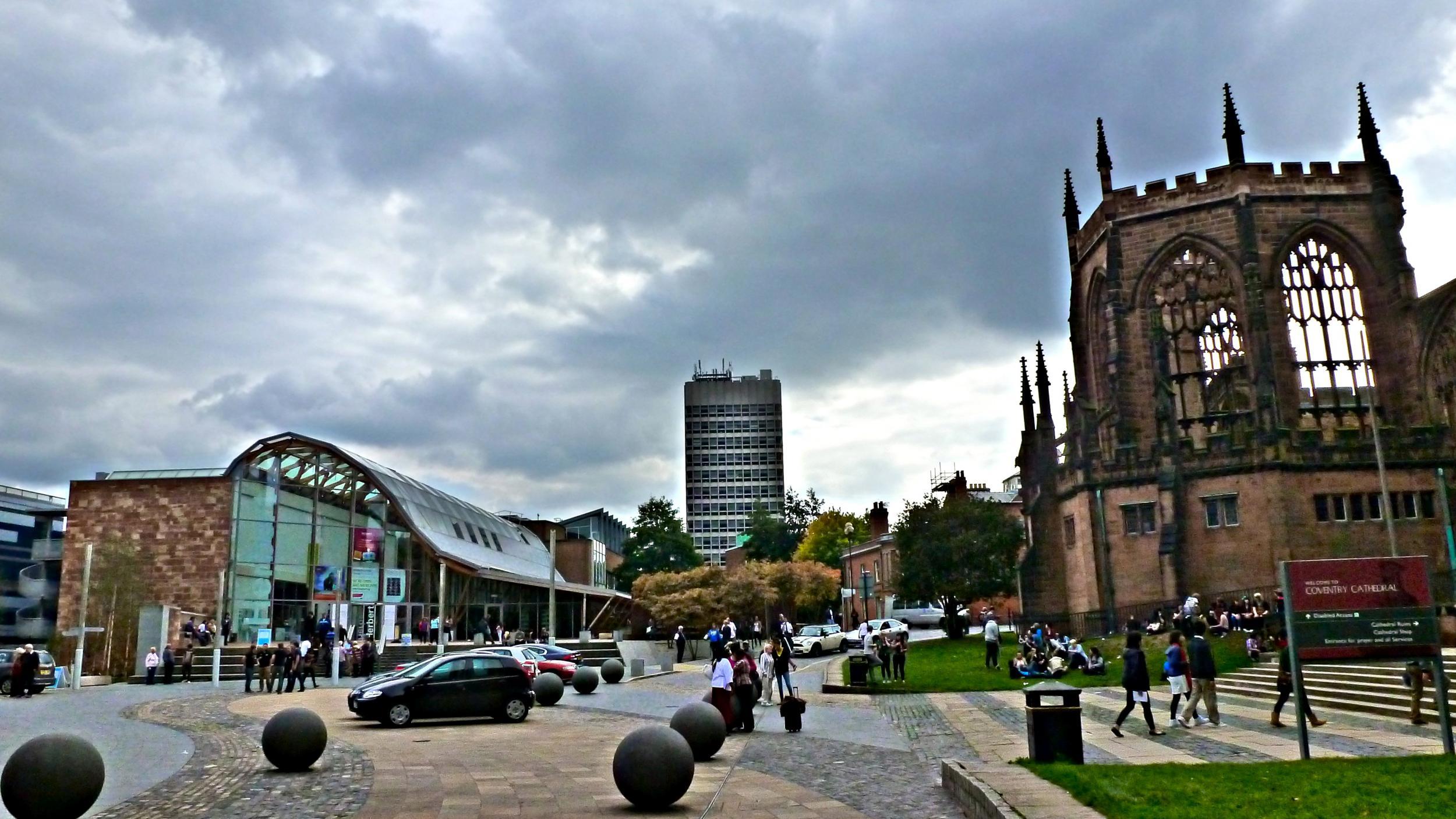UK City of Culture 2021: Why Coventry took the title
Coventry might seem an odd pick as a cultural capital, but actually, says Clementine Wallop, it’s rather lovely

I have been a tourist in Coventry, yesterday named the UK City of Culture 2021. Maybe you’re laughing; maybe you’re wondering why. I’m on a mission to see all of Britain’s cities, and have clocked off almost 40 now – and I started with the ones I’ve never been to before.
I’d never been to Coventry and so it came quite high on my list. I had, however, been to both Dresden and Hiroshima; in some ways it was odd that I was prepared to fly 12 hours to Japan to visit a city that commemorates a terrible war history and yet hadn’t made it two hours on the train to the West Midlands.
As with all my city tours, I asked local friends and the Coventry diaspora what I might find – and what I might do when I arrived. “Nothing,” came one answer. “It’s a shithole,” was another. There were plenty of puzzled faces and curious questions.
Having been there, I can confirm that Coventry’s attractions aren’t obvious from the moment you arrive. This isn’t a Bath, an Oxford or a Cambridge, and aesthetic appeal isn’t a strong suit.
So, what did I do when I got there and what can you do if and when you choose to visit? There will, of course, be special events throughout the year during 2021, but there is, it turns out, a fair bit to see in Coventry anyway.
Of course, first and most important is the shell of the cathedral, devastated in the Second World War. Then there’s the new cathedral, designed by Sir Basil Spence and consecrated in all its rainbow-lit glory in 1962. These are intensely moving and atmospheric buildings that – now I’ve seen them – I think demand a trip to the city whatever the year.
There’s Lady Godiva (or, rather, her statue), proudly making her way across Broadgate. There’s the Coventry Transport Museum, home to anything and everything that ever went on wheels and marking the city’s history as a manufacturing centre. There’s the Herbert Art Gallery and Museum, which isn’t a national great but is a fascinating collection and a welcoming museum for families and children.
Along Spon Street are the remains of what once must have been an exquisitely pretty medieval centre – all wiggly rooftops, timber frames and a haunted curry joint, the Turmeric Gold, with an in-house ghost called George.
On the food front, the city is also home to the Coventry Godcake, once forgotten and now revived by the local Heritage Pantry. The cakes have three slashes across their top representing the Trinity.
When I go on my city trips, I make playlists of the city’s most famous music and sometimes its most famous poetry to listen to as I go around to get a sense of the culture. Coventry’s list, which is available on my Spotify if you’re interested, features The Specials, whose track “Ghost Town” tells you what many locals see in their city since the car factories closed; Specials drummer John Bradbury has said: “When I think about ‘Ghost Town’ I think about Coventry.”
Also on the list are Panjabi MC and The Enemy (their debut album is called We’ll Live And Die In These Towns) whose lead singer has backed the city of culture bid.
Then there’s Philip Larkin (it’s an odd list, I can’t lie) and his poem about Coventry, “I Remember, I Remember”, which includes the line: “You look as though you wished the place in Hell.”
Coventry, long a city thought of as having little, now has an exciting chance at something. Being named UK City of Culture is not only about what has gone before, but more importantly how things are now, and how they could be in the future. Just ask the people of Hull, this year’s City of Culture.
Coventry’s cultural history may be overlooked, but this is an opportunity to show off not only its past, but also its present, and to shift perceptions of one of our less loved cities. With genres like ska, indie pop and bhangra calling Coventry home, it would be especially good to see support for the city’s music scene in the cultural programme.
Nothing to see? Hopefully by the close of 2021, Coventrians will be telling a different story.
Join our commenting forum
Join thought-provoking conversations, follow other Independent readers and see their replies
Comments